Celebrate Our Staff – August 2021 part one
Here we celebrate part one of our colleagues’ achievements across the University this past summer.
Advance HE highlighted teaching excellence at Leeds

National Teaching Fellowship and collaborative teaching success
Dr Alison Voice (School of Physics and Astronomy) has been awarded a National Teaching Fellowship (NTF), while the School of Biomedical Sciences’ Capstone Experience Team – led by Dr Dave Lewis – received a Collaborative Award for Teaching Excellence (CATE).
The NTF scheme celebrates and recognises individuals who’ve made an outstanding impact on student outcomes and the teaching profession in higher education. Dr Voice has combined scientific research with innovative developments in the teaching of physics throughout her career.
She said: “I’m honoured and delighted to receive this award.
“The NTF scheme is recognised nationally and internationally, and I’m excited to join this ever-growing community of practitioners who are passionate about making a difference to the education and futures of students everywhere.”
The CATE – first Introduced in 2016 – highlights the role teamwork plays in enhancing teaching and learning through collaborative approaches.
This is the first time Leeds has won the award.
The Capstone Experience Team received the accolade in recognition of its work with its internal and external partners, along with the exceptional student experience and sector-wide impact its projects have provided.
Dr Lewis said: “Receiving this award is a fantastic achievement, and recognition for the team and University for the exceptional student experience we strive to provide. I want to personally thank everybody for their contributions.”
Leeds innovators honoured by British Academy
 Professors Adrian Favell, David Hesmondhalgh, Helen Steward and Simon Armitage
Professors Adrian Favell, David Hesmondhalgh, Helen Steward and Simon Armitage
Three of our academics have been elected to British Academy Fellowships, and Simon Armitage – Poet Laureate and Professor of Poetry – has been elected an Honorary Fellow.
Alongside Professor Armitage, the new Fellows are:
- Professor Adrian Favell – Chair in Sociology and Social Theory and Director of the Bauman Institute;
- Professor David Hesmondhalgh – Professor of Media, Music and Culture; and
- Professor Helen Steward – Professor of Philosophy of Mind and Action.
Vice-Chancellor, Professor Simone Buitendijk, said: “This is a wonderful recognition of our talented colleagues, and I warmly congratulate all of them.
“The work of the British Academy to recognise and support excellence is important, and I’m thrilled to see these Leeds innovators being honoured.”
The British Academy is a Fellowship of more than 1,400 leading minds in humanities and social sciences from the UK and overseas. It’s also a funding body for research – nationally and internationally – and a forum for debate and engagement.
This year, a total of 84 Fellows – 52 UK Fellows, 29 Corresponding Fellows and three Honorary Fellows – have been elected to the Fellowship.
Leeds Cultural Education Partnership appointment
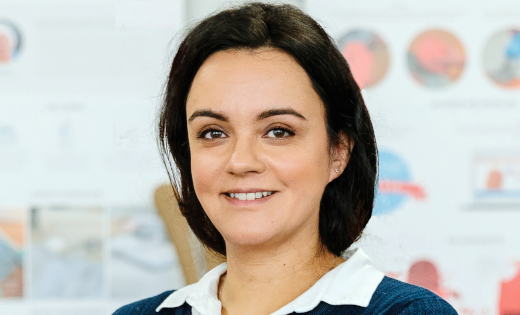 LeedsCEP has appointed Dr Briony Thomas to a leadership role
LeedsCEP has appointed Dr Briony Thomas to a leadership role
Dr Briony Thomas (Schools of Mechanical Engineering and Design) has been announced as the Independent Chair of the Leeds Cultural Education Partnership (LeedsCEP).
Established in 2017, the LeedsCEP is one of a number of local partnerships launched by Arts Council England and the Department for Education to improve the alignment of cultural education for young people.
It’s a network of arts, cultural, educational and community organisations, businesses and city council representatives that works with schools and partners, like Leeds, to grow aspirations and talents of young people through arts and cultural opportunities.
Dr Thomas said: “It’s an immense privilege to be joining the LeedsCEP as Chair at an important moment in the development of the partnership.
“I’m incredibly excited to help shape the future for LeedsCEP and to champion the vision of Leeds as a city that grows the aspirations and talents of all young people through access to high-quality arts and cultural opportunities.”
She will be taking a strategic role within LeedsCEP, which includes chairing the steering group, overseeing partnerships and fundraising, as well as representing the organisation at regional and national levels.
LeedsCEP will also work closely with Leeds2023 – of which the University is also a principal education partner – in order to deliver a cultural programme for children and young people.
Presidential election for civil engineering colleague
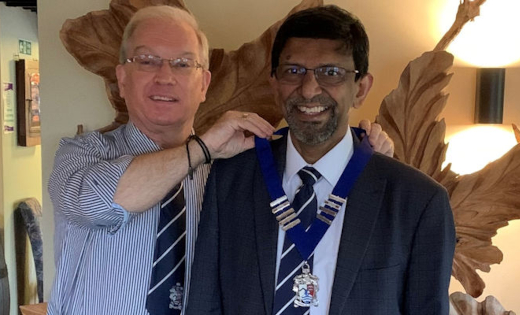 Professor Muhammed Basheer has become ICT President
Professor Muhammed Basheer has become ICT President
Professor Muhammed Basheer, Chair in Structural Engineering in the School of Civil Engineering, has been elected as President of The Institute for Concrete Technology (ICT) for the next two years.
A global network of concrete technologists, the ICT is the only professional body in the world with authority to issue professional, concrete-related qualifications.
Professor Basheer said: “I’m very pleased and honoured to be elected to serve as ICT’s President, especially given that the Institute will be celebrating its 50th anniversary next year.
“I’m looking forward to the opportunity this role will bring to be an excellent ambassador for the University, both nationally and internationally.”
Professor Basheer’s 40-year career in the concrete industry began with an undergraduate dissertation on the design of high-strength concrete, and went on to include more than five years as the Head of School of Civil Engineering at Leeds.
His career has been recognised with multiple international awards and honours, including the Lifetime Achievement Award from the Civil Engineering Research Association of Ireland (2014).
Professor Basheer also became a Fellow of the American Concrete Institute (ACI), receiving a CANMET/ACI award in 2021 nfor sustained contributions made to concrete technology research.
In 2016, the India chapter of the ACI held its international conference in Professor Basheer’s name to honour his achievements.
Special advisor appointment
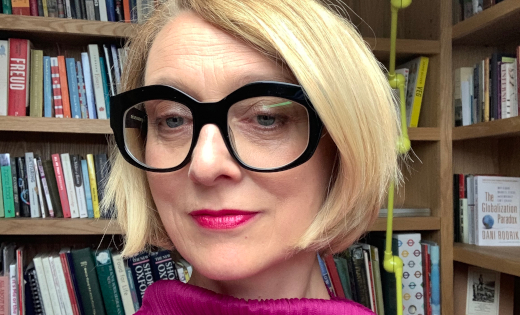 Professor Fiona Smith has been appointed to a House of Commons committee
Professor Fiona Smith has been appointed to a House of Commons committee
Professor Fiona Smith (School of Law) has been appointed a Special Advisor to the House of Commons International Trade Committee.
Professor Smith will use her expertise in agrifood trade to assist the committee with its scrutiny of the UK’s post-Brexit trade deals.
This will involve working with the committee secretariat to identify and analyse the relevant issues raised by Free Trade Agreements with the likes of the US, Australia and New Zealand.
She will also contribute to briefings, and advise on sources of information and evidence.
Professor Smith said: “I’m honoured to be appointed as Special Adviser to the House of Commons International Trade Committee for its work scrutinising the effects of the UK’s new trade agreements on the interface between agrifood supply chains, climate resilience and human health.
“I’m grateful to all my colleagues in the Law School, the Global Food and Environment Institute and N8 Agrifood for enriching my research and for their support as I undertake this role.
“This is a wonderful opportunity to feed interdisciplinary academic research into the development of policy as the UK forges an independent identity on the global stage.”
As Professor in International Economic Law and Global Food and Environment Institute Associate Director for Agrifood Supply Chains, her areas of expertise include international trade under the World Trade Organisation and regional trade agreements, as well as Brexit and trade.
Professor Smith’s expertise also extends to international agricultural trade, along with UK and EU agriculture regulation.
Advising on DEFRA policy
 Professor Lisa Collins will be helping to advise DEFRA
Professor Lisa Collins will be helping to advise DEFRA
Professor Lisa Collins (Head of the School of Biology) has been appointed to the Department for Environment, Food and Rural Affairs’ (DEFRA) Science Advisory Council (SAC).
The SAC provides independent advice on science policy and strategy.
Part of its remit involves assisting DEFRA’s Chief Scientific Adviser in assuring and challenging the evidence DEFRA uses in its policy development.
The council works at a high strategic level, across all aspects of DEFRA’s evidence, and is able to establish time-limited sub-groups in relation to emergencies or to carry out in-depth studies.
Professor Collins said: “Being offered the opportunity to join the DEFRA Science Advisory Council and to support evidence-based policy making at a time of unprecedented challenge and change for our environment and farming practices is a huge honour.
“I’m excited to contribute and to work with such a fantastic group of colleagues during the coming years.”
As well as Head of the School of Biology, she’s Professor of Animal Science, N8 Agrifood Chair in Agricultural Systems, Academic Director of the National Pig Centre, and Director of the Smart Agri-Systems research initiative at Leeds.
Professor Collins’ research focuses on the development and application of smarter agricultural systems through multi-disciplinary approaches, including technology development, systems modelling and data analytics.
She also serves on various national and international advisory, funding and academic society councils and strategy groups.
New Chair of University Council of Modern Languages appointed
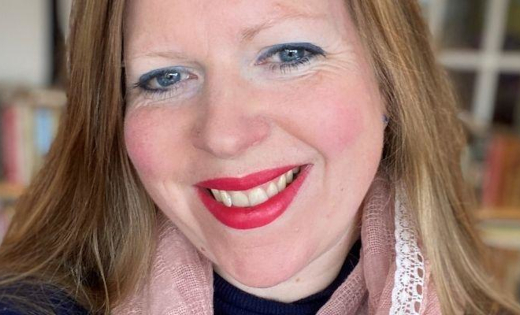 The UCML have elected Professor Cayley
The UCML have elected Professor Cayley
Professor Emma Cayley, Head of the School of Languages, Cultures and Societies, has been elected as Chair of the University Council of Modern Languages (UCML).
UCML is the unifying voice for modern languages and related disciplines in the UK, representing the views and opinions of scholars and professionals to various national bodies, including the Government.
Professor Cayley said: “We’ve grown together as an Arts and Humanities sector during the past few years in defining, promoting and defending our disciplines.
“The sense of a unified voice for languages in the UK is key to entering an uncertain future with confidence in our collective power. I’m honoured to be in a position to help achieve this under the UCML banner.”
UCML also collects and disseminates information about the state of study, research and teaching of modern languages, as well as cognate disciplines, in the UK.
As Chair, Professor Cayley aims to deepen UCML’s sense of community, increase recognition of the devolved nations’ different situations, and strengthen links with external partners.
Professor Cayley’s expertise lies in medieval French literature, with a particular interest in French literary production in the 14th and 15th centuries. Mirroring Professor Cayley’s objectives at UCML, this period was marked by a ‘collaborative culture’, whereby authors and poets engaged with the wider community, and each other, through words on the page.
Formerly UCML’s Vice-Chair for External Engagement and Communication, Professor Cayley took up her new role at the end of July, and will fulfil it for the next three years.
Historical society fellowships for law academics
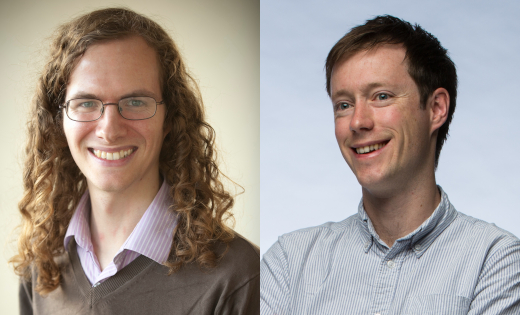 RHS Fellows Dr David Churchill and Dr Henry Yeomans
RHS Fellows Dr David Churchill and Dr Henry Yeomans
Dr David Churchill and Dr Henry Yeomans (both School of Law) have been elected Fellows of the Royal Historical Society (RHS).
At its meeting in July, the RHS Council elected a total of 150 Fellows, 56 Members and 76 Early Career Members.
Most of the new fellows are academics across various fields, along with a selection of names from areas as diverse as broadcast, film-making, public history, curation, publishing and beyond.
Dr Churchill said: “I’m very pleased to be elected a Fellow of the Royal Historical Society and I look forward to supporting the work of the society.”
The RHS highlighted how these newly-elected Fellows bring a range of expertise and experience with them.
The aim is that the range of disciplines the 2021 fellows boast will help the society to fulfil its objective of representing the diverse body of those engaged in historical scholarship.
Dr Yeomans added: “I’m delighted to be elected a Fellow of the Royal Historical Society.
“This is especially gratifying because, as an inter-disciplinary researcher, I’m accustomed to working at the margins of several disciplines and attracting the ire of the purists, who often occupy the disciplinary centre ground. So, I’m really proud of this achievement and very happy that the Royal Historical Society takes such a confident and inclusive approach to historical scholarship.”
Founded in 1868, the RHS is the UK’s foremost historical society and the UK’s largest membership organisation for historians, with nearly 4,500 people around the world belonging – and contributing – to it.
See a full list of the newly-elected fellows and members
Professor to advise on dental epidemiology
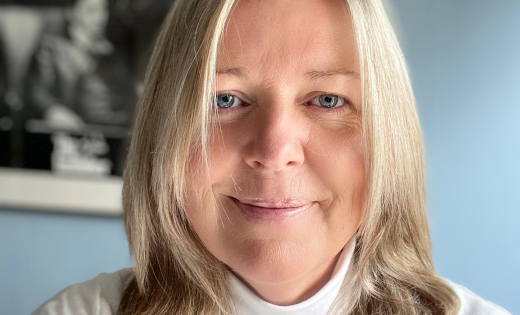 Professor Gail Douglas will be advising the British Association for the Study of Community Dentistry
Professor Gail Douglas will be advising the British Association for the Study of Community Dentistry
Professor Gail Douglas (School of Dentistry) has been elected as the UK scientific advisor for dental epidemiology within the British Association for the Study of Community Dentistry (BASCD).
BASCD is the UK professional association for the science, philosophy and practice of promoting oral health in society and addressing oral health inequalities.
It’s responsible for the coordination of annual surveys of dental health across Great Britain, allowing national and local comparisons of oral health.
Professor Douglas said: “I’m delighted to be working with the four UK national epidemiology coordinators as the new BASCD scientific advisor.
“UK dental epidemiology is held in high esteem internationally and plays a vital role in planning and monitoring dental services and oral health improvement initiatives.
“I’m excited to have the opportunity to take forward a series of developments to further increase its value.”
Professor Douglas’s role as scientific advisor will see her working with NHS dental epidemiology coordinators from around the UK to help ensure our dental surveys are of the highest quality.
These surveys are vital for identifying oral health inequalities and for the planning of dental services and oral health programmes.
This new position will blend her part-time role within Public Health England (PHE), where she works with the national lead for oral epidemiology as an academic advisor for all matters relating to oral health surveys in England.
COP26 Fellowship for Leeds researcher
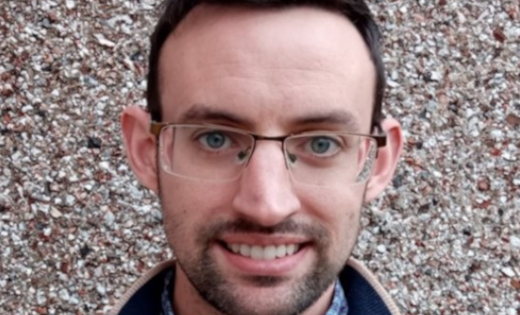 Earth and Environment’s Dr Stephen Whitfield has been awarded a COP26 Fellowship
Earth and Environment’s Dr Stephen Whitfield has been awarded a COP26 Fellowship
Dr Stephen Whitfield, Associate Professor of Climate Change and Food Security in the School of Earth and Environment, has been awarded a fellowship to engage with international climate negotiations before the UN’s climate change conference – COP26 – and beyond.
This COP26 Fellowship, which is the second to be awarded to a researcher at Leeds, will focus specifically on agriculture and climate change.
Dr Whitfield said: “Agricultural transformation is so important for climate change mitigation and adaptation, and through the fellowship I’m going to be focusing on the challenging questions of how transformation can be equitable and just.
“I’m excited to take that discussion to COP and see where it goes.”
Dr Whitfield has extensive experience in food systems transformation. He’s an Associate Director of the Global Food and Environment Institute and currently leads a strand of the Global Challenges Research Fund’s programme – Agricultural and Food-system Resilience: Increasing Capacity and Advising Policy.
The fellowship will be embedded into the activities of the COP26 universities network and is awarded through the Grantham Institute at Imperial College, London.
Earlier this year, Dr Harriet Thew (School of Earth and Environment) became one of four initial COP26 Fellows with her project YES TO NetZero.
New Chief Information Officer appointed
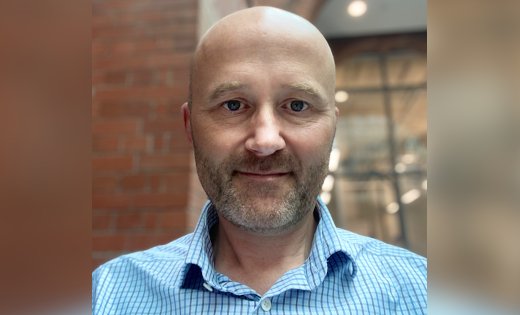 Chief Information Officer Dan Simms
Chief Information Officer Dan Simms
Dan Simms has been appointed the University’s new Chief Information Officer.
Dan joined Leeds in an interim capacity in July 2020, to help us with our response to the pandemic.
He has also been instrumental in developing and gaining support for the £76m investment approved by the University Council to deliver two interlinked IT programmes – Digital Enablement and Be Safe
Before joining the University, Dan held a variety of senior IT leadership and consultancy positions across several organisations and industry sectors.
He has a wealth of experience leading multi-million-pound change programmes, developing IT strategy and building stakeholder relationships.
Dennis Hopper, Interim Chief Operating Officer, said “I am delighted that Dan has been appointed to the role of Chief Information Officer.
“I would like to thank Dan for all his hard work to date, and welcome him into his new, permanent role in the University.”
Part two
It’s a bumper edition of Celebrate Our Staff this month!
Get in touch!
We know there are lots of great things happening to support the work of the University – and we want to hear about them!
Please follow the staff Twitter account to see the latest updates and copy in our @UniLeedsStaff handle when posting success stories, so we can share them with colleagues.
You can also contact Internal Communications directly if you or one of your colleagues would like to appear in this monthly feature. This is open to all staff – professional and academic.
Posted in: University news